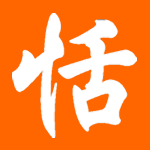Reader Gert emails from Belgium:
"Hi! I got this carpet thingy from a friend but he didn't know what it meant & neither do I since I cant read Kanji :) Would you be so kind to tell me what I've got hanging on my wall? And if I put it up the right way.. :/ I'm very anxious to know what it means, thanks again!"
In the original image Gert has send me, the carpet was placed top side down. The characters on the carpet are correctly written Japanese phrases, although they do appear random.
万歲 = 10,000 years, also known as "banzai"
美 = beautiful, pretty; pleasing
盆栽 = miniature plants, also known as "bonsai"
祭 = sacrifice to, worship, festival
合気道 = way of harmony with the universe, also known as "aikido"
勝 = victory; excel, be better than
望 = to look at, look forward; to hope, expect
日本 = Japan; Japanese
氷 = ice, frost, icicles; cold
祝 = pray for happiness or blessings
空手 = empty handed, weaponless, also known as "karate"
酒 = wine, spirits, liquor, alcoholic beverage


Since these appear to be a bunch of Japanese words, I'd translate 祭 (matsuri) as "festival" instead. This carpet looks a lot like the T-shirts I find in TOkyo stores with English vocab on them . . . the words are all spelled right, but they sure don't go together.
ReplyDeleteIt should be noted that aikido does not use the Chinese version of qi1 on the rug as you have put up, but rather 気. Note that the inside is not rice (米) in this case, but a cross.
ReplyDeleteHi Kyle, I studied Aikido in Tokyo for several years. It was always written with 氣 and not 気。
ReplyDeleteI just re-read what Kyle posted and I see he was pointing out an error in the rug. Sorry man.
ReplyDeletefyi, in general use, like on the computer if you type aikido, it will choose the simplified form, so it's an understandable error: even among japanese i bet only aikido practicioners would know the other way (that looks like rice) is preferable.
I'm sure whoever created this wrote 酒 with a certain Japanese reading in mind, namely sake ;)
ReplyDeleteColorless green ideas sleep furiously.
ReplyDeleteThe character 永 means "eternal," not "ice" 冰, but they look alike--anyone's mistake. The word or phrase 永祝 basically means something like "eternal congratulations/blessings," though there may be a specific denotation that I'm not aware of.
ReplyDeleteFunny Site, and thanks!
-Allen
Allen2,
ReplyDeleteDid you even bother to click on the reference link for 氷? IT is a Japanese specific kanji.